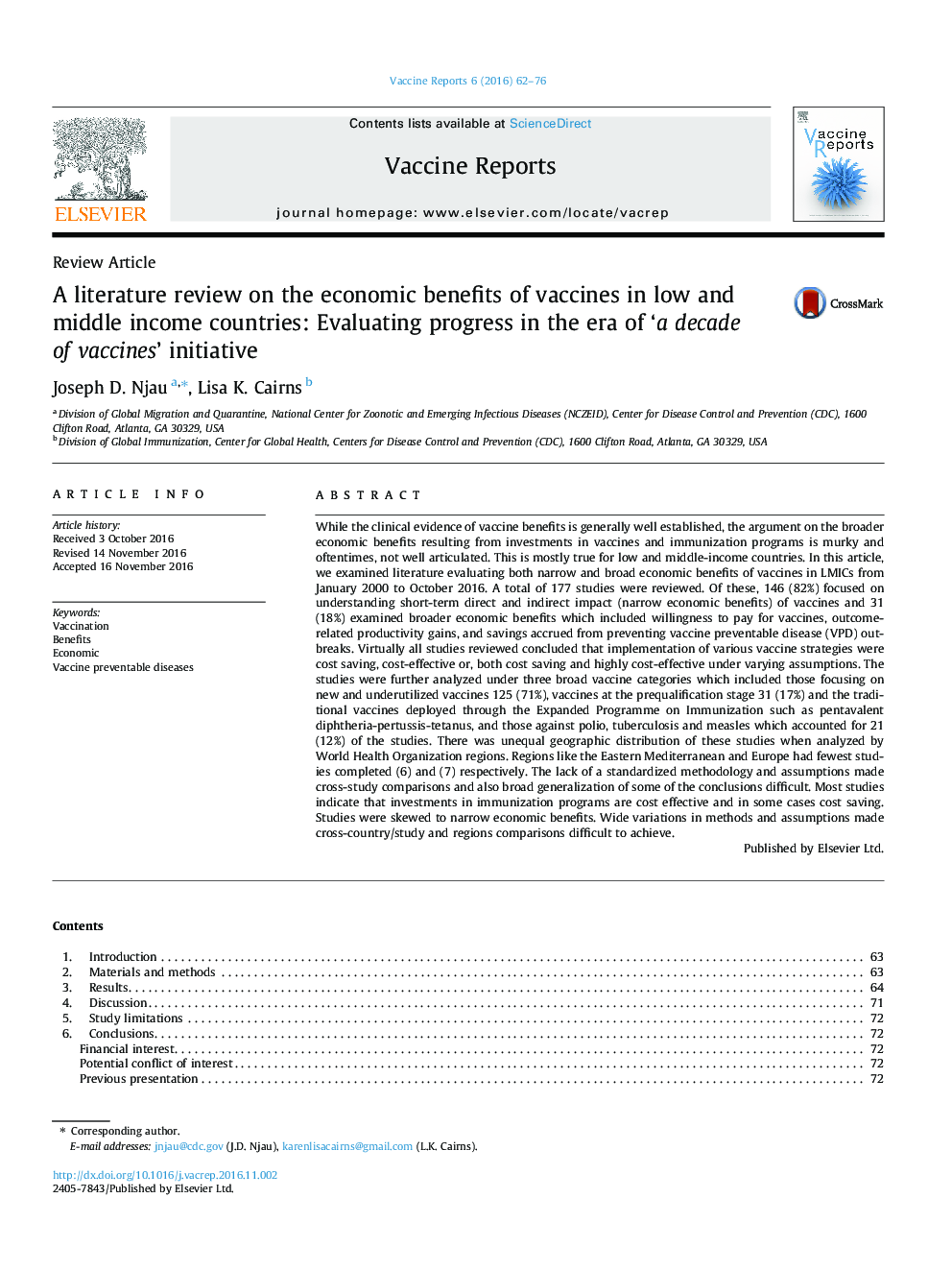| Article ID | Journal | Published Year | Pages | File Type |
|---|---|---|---|---|
| 8507611 | Vaccine Reports | 2016 | 15 Pages |
Abstract
While the clinical evidence of vaccine benefits is generally well established, the argument on the broader economic benefits resulting from investments in vaccines and immunization programs is murky and oftentimes, not well articulated. This is mostly true for low and middle-income countries. In this article, we examined literature evaluating both narrow and broad economic benefits of vaccines in LMICs from January 2000 to October 2016. A total of 177 studies were reviewed. Of these, 146 (82%) focused on understanding short-term direct and indirect impact (narrow economic benefits) of vaccines and 31 (18%) examined broader economic benefits which included willingness to pay for vaccines, outcome-related productivity gains, and savings accrued from preventing vaccine preventable disease (VPD) outbreaks. Virtually all studies reviewed concluded that implementation of various vaccine strategies were cost saving, cost-effective or, both cost saving and highly cost-effective under varying assumptions. The studies were further analyzed under three broad vaccine categories which included those focusing on new and underutilized vaccines 125 (71%), vaccines at the prequalification stage 31 (17%) and the traditional vaccines deployed through the Expanded Programme on Immunization such as pentavalent diphtheria-pertussis-tetanus, and those against polio, tuberculosis and measles which accounted for 21 (12%) of the studies. There was unequal geographic distribution of these studies when analyzed by World Health Organization regions. Regions like the Eastern Mediterranean and Europe had fewest studies completed (6) and (7) respectively. The lack of a standardized methodology and assumptions made cross-study comparisons and also broad generalization of some of the conclusions difficult. Most studies indicate that investments in immunization programs are cost effective and in some cases cost saving. Studies were skewed to narrow economic benefits. Wide variations in methods and assumptions made cross-country/study and regions comparisons difficult to achieve.
Related Topics
Life Sciences
Immunology and Microbiology
Immunology and Microbiology (General)
Authors
Joseph D. Njau, Lisa K. Cairns,
